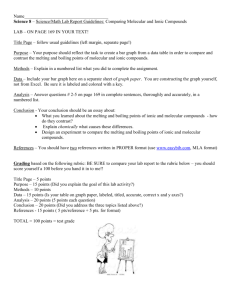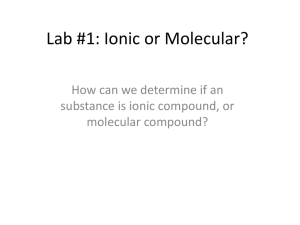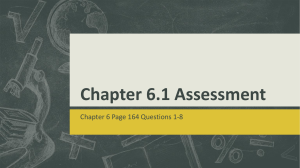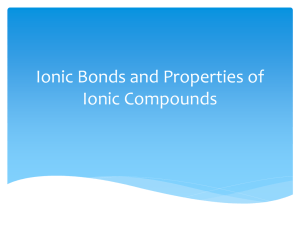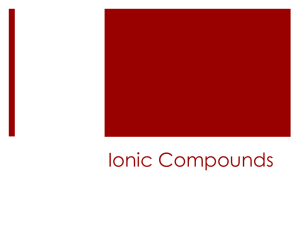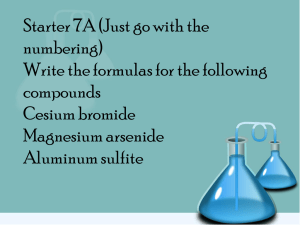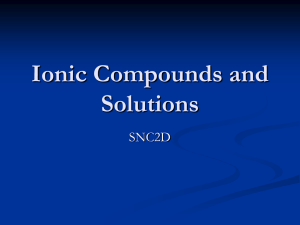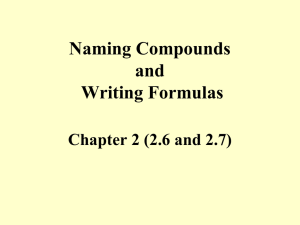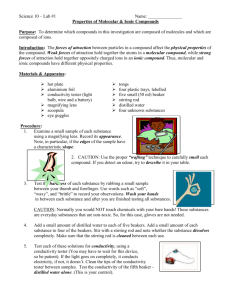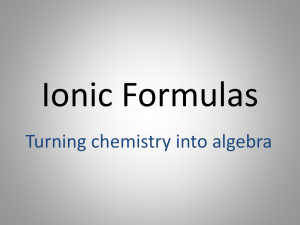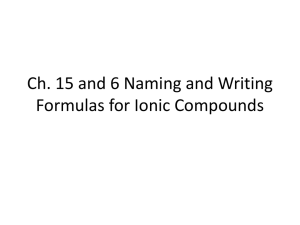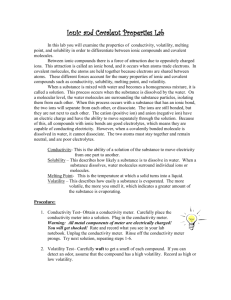Properties of Ionic Compounds
advertisement
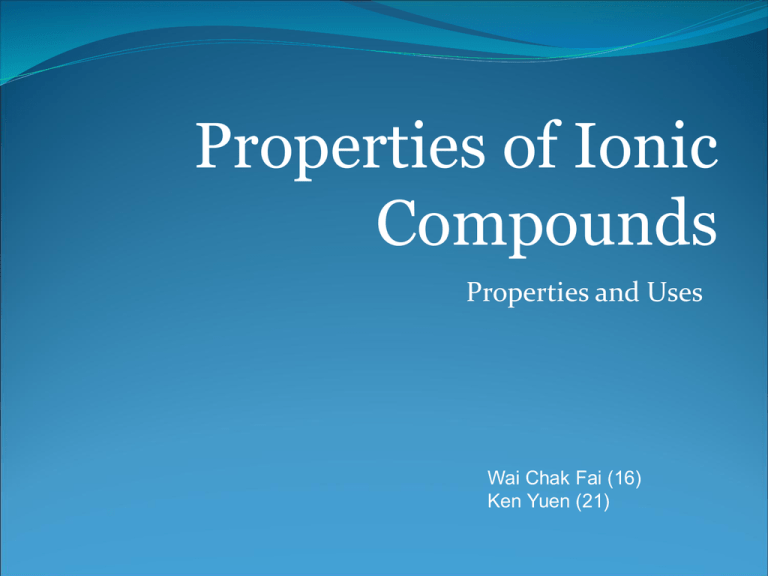
Properties of Ionic Compounds Properties and Uses Wai Chak Fai (16) Ken Yuen (21) Content Definition of ionic compounds Property of ionic compound In crystal form Solubility in water High melting and boiling point Conductivity of electricity Use of ionic compound Use as dryers Use to make pans Definition: An ionic compound is a chemical compound in which ions are held together in a lattice structure by ionic bonds. •Ions in ionic compounds are held together by the electrostatic force between oppositely charged bodies. Properties In crystal form Most of the ionic compounds are in crystal form. Sodium Chloride Cupric chloride Hard and brittle They are very hard and firm. Each cation and anion are closely joined together by electrostatic force, thus it is hard to break down them. Solubility in water They are soluble in many medium. For example: Sodium Chloride can dissolve in: glycerol, ethylene glycol, formic acid, water. Lead(II) Bromide can dissolve in: ammonia, alkali, KBr, NaBr High melting and boiling point For example: Sodium Chloride Melting point: 801℃ Boiling point: 1465℃ Lead(II) Bromide Melting point: 373 ℃ Boiling point: 916 ℃ Conductivity of electricity They can conduct electricity when they are in molten or aqueous form. This process is called as electrolysis. Uses of ionic compound They can be used as dryers. As they are soluble in water, they can “absorb” the water vapors in the air. That’s why salt becomes dissolved when it is exposed to the air directly. Ionic compounds can carry out electrolysis to make metals and other useful materials e.g. chlorine. They can be used to replace wires as they conduct electricity in aqueous form. Cons: They will be decomposed and give out energy when the electrical current or voltage is too high. They can be used to make saucepans and pans. They can resist high temperature. They are also very hard and brittle. Conclusion We think that the main features of ionic compound are: the conductivity of electricity and the high melting and boiling point. Their combining methods (ionic bond) are different form covalent bond. We can make use of their features. The End
